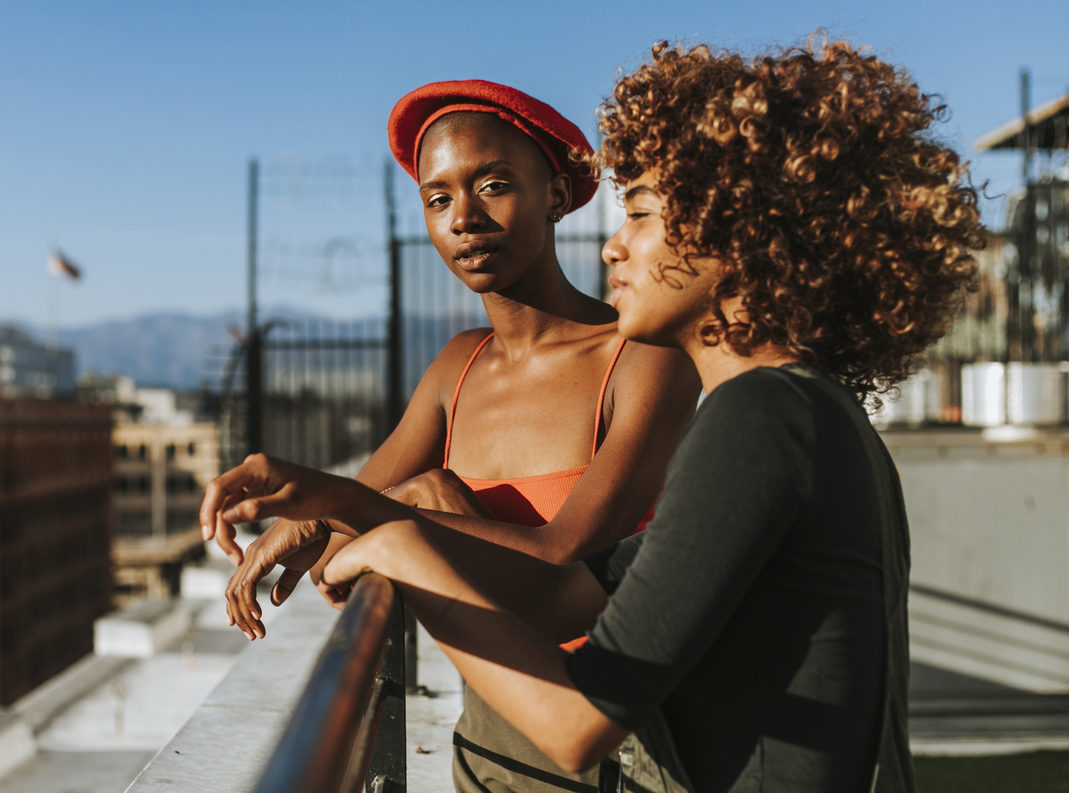“I will not become an angry, man hating feminist today and I will not resign myself to being a Black separatist.”
That’s the mantra I half-jokingly, half-seriously, recite every morning.
Last summer, I was forced to end a friendship with a white queer because of their inability to acknowledge their racial privilege not only in our friendship, but in all facets of their everyday life. This wasn’t the first time I walked away from white friend who could not recognize the condition of race in our relationship but this instance was particularly painful. I’d reached a tender place of intimate connection and vulnerability that I was forced to sever because, as much I believed this person understood me at the level of my queerness, they were oblivious to the level of their whiteness in reflection of never being able to fully understand my Blackness.
Now that I am entering my thirties, I’m finding it a constant challenge to identify white folks who maintain a level of consciousness about the state of race in this country and consider how it affects their relationships with people of color. I am still working to shed my former identity as the “nice Black girl” that white folks have felt “comfortable” around and am entering into an existence that is willing to acknowledge the constant discomfort I have felt much of my life allowing myself to be pegged into this position. I’ve learned the historical reasons I have functioned in this way. I grew up in a Black, southern household where the natural ways we speak and present ourselves transform in public spaces in order for us to assimilate and be accepted in an overwhelmingly predominant white world. It has been my hope, often naively, to create friendships with white folks where I don’t have to feel obligated to change my natural state of being just to “fit in” and fostering friendships with conscious, white queers seemed as if it would the first step in cultivating connections where I would not have to constantly explain or defend my Blackness.
I am not the only person of color who experiences this. It’s no coincidence that as I was mourning the loss of a friendship, I fostered a deeper connection with a fellow queer PoC who was experiencing the same heartache. We naturally began to meetup weekly over coffee and tarot in order to talk through the complexities of navigating our white friendships — how to talk about and express the inciting upset, what to do with feelings of angered regret and how to move forward. Creating a safe space with another person of color to talk candidly about queer white disappointment has guided in better understanding how I can approach new relationships with white folks with what I am beginning to call “open minded caution.”
I am open to friendships with white folks, but I am learning to proceed with caution. I am learning to train both my eyes, ears, and gut to immediate red flags that indicate levels of self awareness around white folks in order to prevent myself from experiencing further harm in my intimate relationships.
As a human in recovery, I regard my white friend’s racist slip ups as a relapse. It is a relapse in racial awareness and even deeper, it is a relapse in toxic race driven philosophies that they may or may not realize they carry in their familial and personal history. This comparison calls forth the realities of how our society continues to institute systems of racism. If you are white — regardless of whether you have a parade of Black friends or lovers, act within the definitions of a white ally, or denounce racist behavior on a daily basis — you are a reflection of a system of racism that continues to plague our society and disenfranchise people of color in such consistent, insidious ways, it’s easy to ignore. That specific privilege of ignorance amongst white folks is an allowance that is not granted to folks of color who are affected by those systems in our work, school, and relationships. And this is precisely why the awareness of white queers is so important.
The Queer identity of white folks does not hold them exempt from acknowledging their whiteness.
In recovery, we say it’s what you do with the relapse that is most important. If we run to a meeting or phone our sponsor, we acknowledge that not only are we capable but willing to recover. We accept relapse but we do not accept submitting to the effects of addiction. The white folks who are safe to welcome into my life are those who know that racist slips are inevitable. It is unavoidable because they are so protected by a system that survives by threatening the existence of others. My white friends that make it their mission to work through, deal with, and learn from their own racist actions, words, and behaviors are the individuals that I feel safe keeping close to me. They do not expect me to educate them or guide them to antiracist resources because they have sharpened their awareness to the fact that I am already burdened and tired from dealing with racism in the first place. They do their own work.
It’s taken many years of white queer heartache and contemplation about my interracial relationships to develop necessary caution. It’s taken me even longer to realize that exclusive Black and PoC spaces are what I need to heal when I am disappointed by a white friend who I thought I could trust to do their own anti-racism work The reality I am learning to face is that as long as I am willing to maintain relationships with white queers there is always a possibility of getting my heart broken. What comforts me in the process is that there is always a possibility of healing amongst the PoC living the same experience.


What Do You Think?